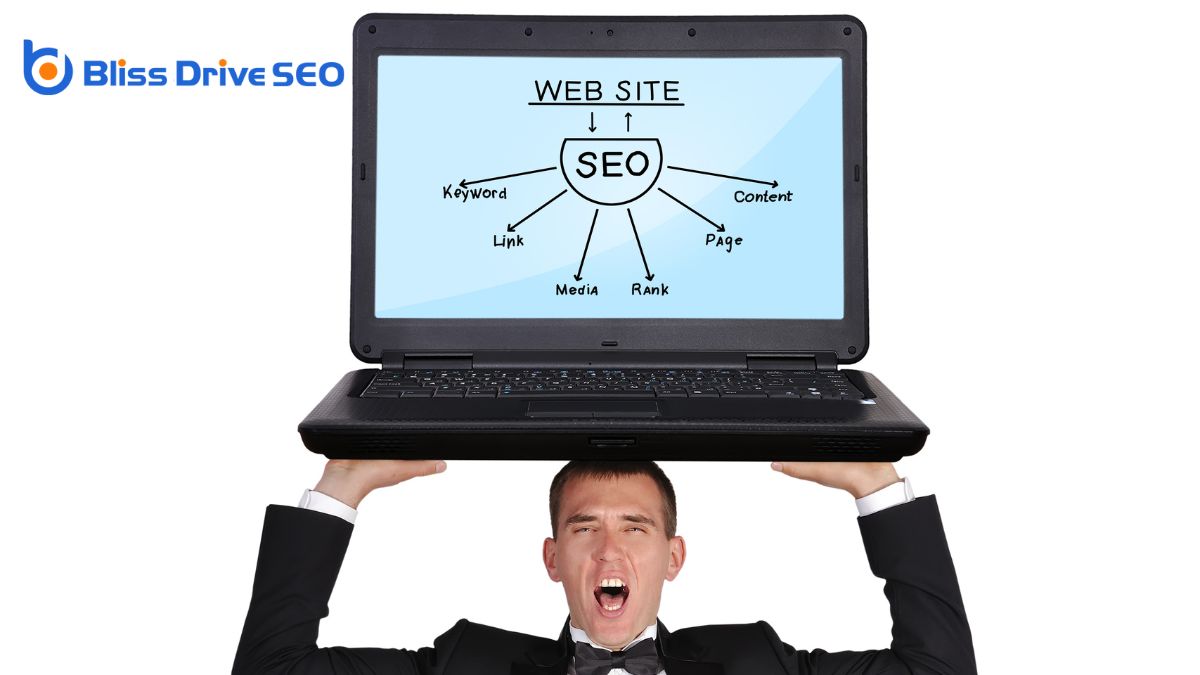Digital Marketing Services
Learn More About Us

To optimize on-page SEOOptimization techniques performed directly on the website, including content and HTML source code. for top ranking, start with strategic keyword placement in your content. Use long-tail keywordsLonger, more specific keyword phrases that are less competitive and often more targeted. and make sure they appear naturally. Optimize your meta tagsHTML tags that provide information about a web page to search engines and visitors., URLs, and meta descriptions with targeted keywordsWords or phrases that users type into search engines to find information.. Improve user experience by making your website mobile-friendly and structuring your content for easy readability. Utilize internal links with keyword-rich anchor textThe clickable text in a hyperlink, important for SEO as it provides context for the linked page. and craft compelling, keyword-focused title tags. Implement schema markupCode added to a website to help search engines understand the content. for better content understanding and keep your content updated regularly. Monitoring performance with tools like Google AnalyticsA web analytics service offered by Google that tracks and reports website traffic. will help you make data-driven adjustments. Stay tuned for advanced techniques to take your SEO to the next level.

On-page SEO involves optimizing individual webpage elements like content, meta tags, and internal links to improve visibility and relevance to search engines. When you focus on on-page SEO, you're enhancing specific parts of your site to make it easier for search engines like Google to comprehend and rank your pages. By optimizing your content and using targeted keywords, you assist search engines in recognizing the relevance of your page to users' queries.
Key elements you should focus on include keyword optimization, meta descriptions, and structured data markup.
Keywords are important because they signal to search engines what your content is about. By strategically placing these keywords throughout your content, titles, and meta descriptions, you make your page more appealing to search engines.
Meta descriptions provide a brief summary of your page's content, appearing under your page title in search results. A well-crafted meta descriptionA brief summary of a web page’s content, shown in the SERP. can enhance click-through rates by giving searchers a clear idea of what they'll find on your site.
Structured data markup helps search engines understand the context of your content, making it easier for them to index your site accurately. Implementing these strategies will guarantee your site is optimized for better visibility and relevance.
Understanding the significance of on-page SEO is essential for your website's success. It enhances user experience, boosts search visibility, and optimizes content quality. Without it, your site might struggle to rank well and attract valuable organic trafficVisitors who come to a website through unpaid search engine results..
Enhancing user experience is at the heart of effective on-page SEO, driving both visitor engagementThe interactions that users have with a brand’s content on social media. and reducing bounce rates. When you focus on refining user experience, you're not just catering to your audience, but also appealing to search engines like Google. Prioritizing on-page SEO elements such as mobile optimization makes sure that your site is fast and navigable on any device, meeting the expectations of ever-growing mobile users.
Clear headings and well-structured content play pivotal roles in improving readability and user satisfaction. When visitors can easily find and understand the information they're looking for, they're more likely to stay on your site, interact with your content, and even return in the future. This boosts visitor engagement and lowers bounce rates, both of which are crucial for maintaining a strong online presence.
A positive user experience also translates to higher click-through rates and better search engine rankingsThe position at which a website appears in the SERP.. When users find your site useful and easy to navigate, they're more likely to click on your links in search results, signaling to search engines that your site is valuable.
Optimizing your website's on-page elements is essential for boosting search visibility and ensuring that search engines can accurately interpret your content's relevance. By focusing on key components like title tags, meta descriptions, and URL structure, you can make it easier for search engines to understand and rank your pages.
Start by crafting compelling title tags that include your target keywords. A well-optimized title helps search engines recognize the main topic of your page, increasing its chances of ranking higher.
Don't overlook meta descriptions either; these snippets should be informative and keyword-rich to improve click-through rates and attract organic traffic.
Your content needs to be structured logically, with headers and subheaders that guide both users and search engines through the material. This organization helps search engines crawl and index your pages more effectively.
Additionally, optimizing your URL structure to be clean and keyword-focused can further enhance your search visibility.
A website's content quality plays a pivotal role in on-page SEO, directly influencing search engine rankings and user engagementThe level of interaction and involvement users have with social media content.. High-quality content keeps visitors engaged and encourages them to return, signaling site relevance to search engines.
To optimize content quality, you should regularly update your site with fresh content, which shows search engines and users that your site is active and relevant.
Effective metadataData that provides information about other data, such as its source, format, and usage. usage is another critical component. By crafting concise and descriptive meta titles and descriptions, you help search engines understand your content better, improving click-through rates.
Additionally, implementing Schema.org markup enhances search engine comprehension, making it easier for them to interpret and display your content in rich snippetsEnhanced search results featuring extra information like ratings or images..
Don't overlook the importance of formatting elements. Using bold text, italics, and heading tags not only makes your content more readable but also aids in SEO optimization.
These elements help search engines to better understand the structure and key points of your content.
To start optimizing your on-page SEO, focus on strategic keyword placement in your content, headings, and URLs.
Don't forget to fine-tune your meta tags, as they play an important role in search engine rankings.
How can you guarantee your website stands out in search engine results? Understanding SEO Basics is the first step. To effectively boost your site's visibility, you need a strategic keyword placement strategy. Start by optimizing your title tags and header tags with relevant keywords. This helps search engines understand your content better.
Next, place keywords naturally within your content to improve relevancy without resorting to keyword stuffingOverloading a page with keywords to manipulate search engine rankings.. This makes your content more appealing both to search engines and readers.
Additionally, incorporating long-tail keywords in your URLs can enhance search engine understanding and ranking.
Don't forget about your meta descriptions. Including keywords here can notably increase your click-through rates.
Another powerful technique is utilizing keyword-rich anchor text in your internal links. This not only strengthens your on-page SEO but also guides visitors through your site seamlessly.
Meta tags play an essential role in your on-page SEO strategy, directly influencing how search engines rank your website. To start, focus on optimizing your title tags. These should be 50-60 characters long, unique, and packed with relevant keywords that align with search intentThe purpose behind a user’s search query.. A well-crafted title tagAn HTML element that specifies the title of a web page, displayed on the SERP and browser tab. not only improves your Google ranking but also attracts organic traffic by making your page more visible in search results.
Next, let's talk about meta descriptions. These short summaries provide a snapshot of what users can expect on your webpage. Craft your meta descriptions to be engaging and include a clear call to action. This approach enhances click-through rates, drawing more visitors to your site and boosting user engagement.
Remember, meta descriptions don't directly affect rankings, but they significantly influence whether users decide to click on your link over others.
Optimizing meta tags isn't just a box to check off; it's a critical part of your on-page SEO strategy. Google values well-optimized meta tags, and so should you. By focusing on title tags and meta descriptions, you'll improve your visibility in search results, which leads to increased organic traffic and better overall performance.

Crafting effective title tags is an essential step in optimizing your on-page SEO. Title tags serve as the clickable headlines in search engine results, making them a critical element for attracting users to your site. To optimize these tags effectively, you'll want to include relevant keywords that match your page content and user search queries. This not only improves your search engine rankings but also enhances click-through rates.
Keep your title tags within 50-60 characters to guarantee they display properly in search results. A concise, compelling title tag that accurately reflects the page content helps meet user expectations, boosting your SEO performance.
When users find what they're looking for, they're more likely to stay on your page, sending positive signals back to search engines about your relevance and authority.
Using target keywords in your title tags helps search engines understand the context of your page, making it easier for them to rank your content appropriately. Remember, a well-optimized title tag isn't just about stuffing in keywords; it's about creating a balanced, enticing headline that draws users in while accurately representing your page's content. This approach ensures better rankings and higher user engagement.
After refining your title tags, shifting your focus to meta descriptions is the next logical step in optimizing on-page SEO. Meta descriptions are HTML attributes that provide concise summaries of your webpage content and are displayed on search engine results pages (SERPs). Crafting these descriptions skillfully can greatly impact your site's visibility and attractiveness.
To optimize your meta descriptions, keep them within the range of 150-160 characters. This guarantees they're fully displayed on SERPs without being cut off. Make sure your descriptions are captivating and include relevant keywords. This not only helps search engines comprehend your content but also entices users to click, boosting your click-through rates.
Well-optimized meta descriptions play a vital role in attracting organic traffic. By creating compelling summaries, you can influence user behavior and drive more traffic to your website. This increased engagement can leadA potential customer referred by an affiliate who has shown interest in the product or service but h... to higher search rankings over time.
As you advance in your on-page SEO efforts, implementing advanced strategies can greatly boost your website's performance. Start by integrating schema markup into your pages. Schema markup helps search engines understand your content better, which can enhance your search visibility and increase click-through rates.
By using structured data, you improve your chances of appearing in featured snippets, giving you an advantage over competitors.
Next, focus on optimizing your content with relevant keywords and engaging material. This not only attracts visitors but also improves on-page SEO performance. Regularly updating and revitalizing your content guarantees your site remains current, which helps maintain search visibility and improve rankings over time.
Monitoring performance metricsKey indicators used to measure the effectiveness of affiliate marketing efforts, such as clicks, con... is essential. Tools like Google Analytics and Semrush can provide insights into how well your strategies are working. Use this data to make data-driven decisions, adjusting and refining your approach as needed.
On-page SEO alone isn't enough to boost your rankings significantly. You need a thorough approach that includes off-page and technical SEOOptimizing the server and website structure to improve search engine crawling and indexing.. Combining these strategies with content creation and link buildingThe process of acquiring backlinks from other websites. maximizes your chances for top rankings.
You rank top in SEO by optimizing on-page elements, using schema markup, and monitoring performance metrics. Create long-form, data-rich content and improve user experience with skimmable text, visuals, and internal links to boost your rankings.
The top factor in on-page SEO is creating high-quality, relevant content that meets search intent and provides value to users. Focus on content that answers questions, offers solutions, and keeps your audience engaged and informed.
You can improve on-page SEO by incorporating target keywords in titles, meta descriptions, and content. Use internal links, optimize images with alt textDescriptions added to images to help search engines understand the content of images., and focus on high-quality content. Regularly monitor performance with tools like Google Analytics.
Optimizing your on-page SEO is essential for achieving top rankings. By focusing on title tags, meta descriptions, and advanced on-page strategies, you're giving your content the best shot at visibility. Remember, each tweak you make contributes to a stronger online presence. So, keep refining and updating your on-page elements, and you'll see the results in your search rankings. Now, go ahead and put these techniques into practice to boost your SEO game!
